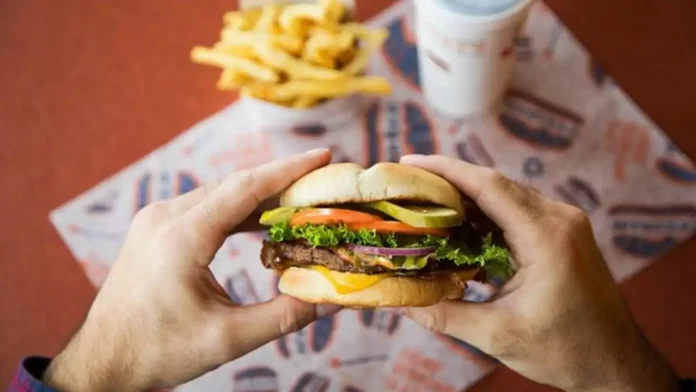Indians seem to be losing interest in international QSR chains like McDonald’s, Burger King, and Pizza Hut, leading these companies to aggressively enhance their value offerings.
Global QSR giants face challenges attracting customers as modern food brands secure venture capital for expansion and apps like Zomato and Swiggy offer easy access to diverse food options through smartphones.
Westlife Foodworld Reports Decline in Footfall:
Westlife Foodworld, which manages McDonald’s outlets in West and South India, noted during the company’s Q1 earnings call: “…there’s clearly been pressure regarding customer footfall in our restaurants.”
In Q1, the company introduced McSavers+, offering a choice of a chicken burger or a snacking item along with a Coke combo meal for INR 69. Burger King has two veg burgers for INR 79 and two non-veg burgers for INR 99. KFC and Pizza Hut are also focusing on value, with meal options priced at INR 99, INR 149, and INR 169. Domino’s is attracting customers with its INR 99 lunch feast.
Continue Exploring: QSR chains face sharp declines in same-store sales and revenue growth
Pizza Hut Adapts Strategies for Gen Z:
A local company spokesperson said, “Pizza Hut has been developing product and value strategies to make the brand appealing to a diverse range of consumers, particularly Gen Z.”
Ravindra Yadav, partner at Technopak, described such offerings as “desperate measures” to attract customers. He added, “It’s a flawed long-term strategy. Emphasizing value could either impact profitability or compromise product quality.”
Global brands have long been aspirational for local consumers and often still are. However, with young, experimental Gen Z and millennial consumers shaping consumption patterns, companies need more than just brand appeal. Analysts argue that they are not innovating sufficiently.
͏Co͏nt͏i͏͏nue͏ ͏E͏͏xp͏loring:͏ P͏izza͏͏ H͏ut India ͏͏op͏er͏at͏o͏r͏ S͏apph͏͏i͏͏re͏ F͏oo͏ds ͏mis͏ses ͏Q1 pro͏fi͏t es͏tima͏t͏e͏͏s ͏d͏ue͏ to͏ ͏w͏͏͏e͏ak deman͏͏d ͏͏an͏͏d͏͏ ͏ri͏s͏i͏ng co͏s͏ts
New-Age Brands and Delivery Platforms Gain Traction:
Karan Taurani, vice-president at Elara Capital, noted, “Today’s consumers are spoiled for choice and can explore various food options thanks to delivery aggregators. They are becoming more experimental, and if they find a positive user experience with new-age brands, they may shift their consumption. Major QSRs must innovate or provide a unique user experience.” He also highlighted that margins for global brands have fallen by 400-500 basis points (100 basis points = 1 percentage point) in recent quarters due to discounting and promotions.
Homegrown brands today can leverage Zomato and Swiggy to expand their reach and achieve scale that offline stores alone might not provide. In recent years, a wave of new-age brands like Good Flippin’ Burgers, La Pino’z Pizza, Burger Singh, Wow! Chicken (by Wow! Momo), and Biggies Burger has transformed the market. For example, Boba Bhai offers aloo tikki burgers starting at INR 59 and chicken burgers for INR 149, while Burger Singh features a range of value burgers starting at INR 39, attracting school and college students, a demographic also targeted by McDonald’s and Burger King. Additionally, premium restaurants have begun using these platforms for delivery, broadening consumer choices. “Beyond competition, companies like Zomato are significant disruptors,” said Taurani.
Yadav noted that the formalisation and ongoing expansion of regional QSR chains have affected the growth of international brands. Regional players like Nik Baker’s are also expanding and providing more food options to consumers.



